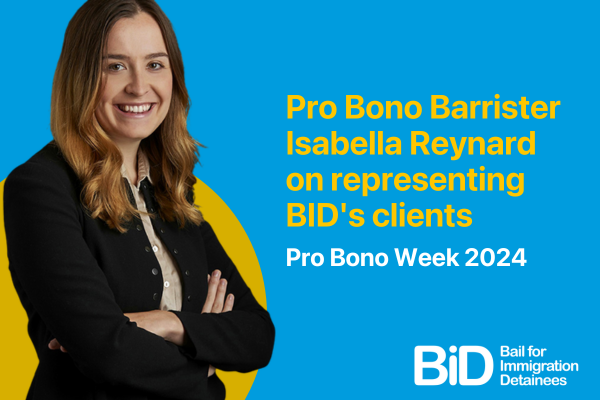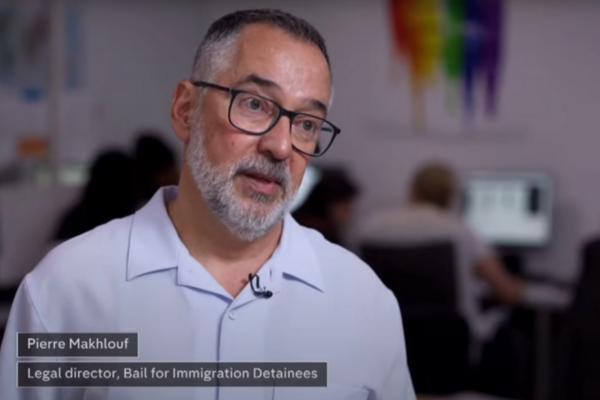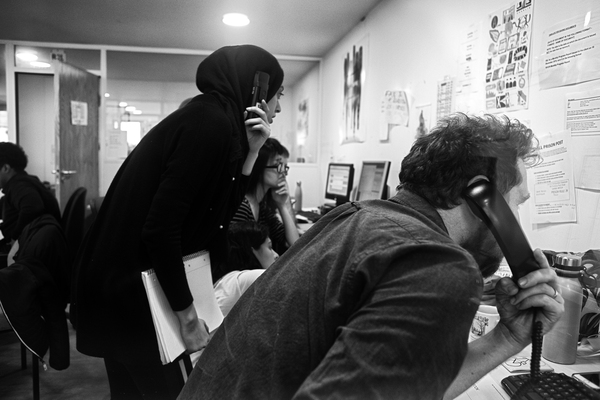We are delighted to announce that BID’s Exeptional Case Funding (ECF) Project has been shortlisted for the category “Best New Pro Bono Activity” in the Law Works Pro-Bono Awards 2019.
In partnership with Ashurst, Debevoise & Plimpton, Dechert and Orrick the project supports people in detention to apply for ECF so that they can access legal aid. So far the project has delivered 731 hours of pro bono legal work.
In the wake of the Windrush scandal, the Joint Committee on Human Rights (JCHR) considered the issue of immigration detention and made a number of recommendations. It called for the simplification of Immigration Rules, in recognition of the fact that this area is highly specialist, complex and ever-changing, the provision of automatic access to legal advice for detainees, and access to immigration advice for prisoners challenging deportation.
The situation for detainees facing deportation had already been made more complicated in 2013 when immigration law was largely removed from the scope of legal aid. Detainees are therefore faced with having to navigate the deportation appeals process without affordable legal advice at a hugely stressful time in their lives. For the overwhelming majority of clients, paying a lawyer privately is prohibitively expensive, particularly as many cases require costly expert reports, in addition to legal fees.
In light of these cuts and the recognition that this was a highly complex area of law, UK charity Bail for Immigration Detainees (BID) and four law firms - Ashurst, Debevoise & Plimpton, Dechert and Orrick - launched the BID ECF project in January 2019. The project sees trained volunteer lawyers apply for ECF on behalf of clients facing deportation currently in prison, detention centres or on bail. ECF is a form of legal aid, but for areas of law that fall outside the scope of mainstream legal aid. Successful ECF applications allow clients to access publicly funded advice and representation to make the case against deportation. This then saves the client and their family from having to go through the often long and traumatic appeals process. It has also allowed clients to access legal representation at appeals in the Immigration Asylum Chamber against deportation decisions.
Many people are not aware of the existence or function of ECF and so are not accessing it. This is particularly true of people in prison or detention. The application process itself is complicated and difficult for litigants in person to navigate. In light of this, BID trained the volunteer lawyers with the skills to complete these applications during an intensive 1.5 hour training session. The ECF application process is complex and time consuming for a litigant in person. The information required includes a full means assessment with evidence, often requires medical evidence, and numerous other factual bases. In addition, the client is expected to put forward a legal argument rooted in human rights legislation to reach the merits threshold.
The client group for this project is particularly vulnerable. All have been told they face deportation, many to countries of which they have no memories, having moved to the UK as children. Many have children in the UK who are British citizens and deportation would separate them from family, friends and their support network. Deportation to an unfamiliar, often unsafe, environment would have a devastating effect on their mental and physical wellbeing.
Crucially, the work does not stop once the ECF application is submitted. If, as with 100% of applications from the project so far, ECF is granted BID then works to find a legal aid lawyer to provide specialist advice.
In the wake of the Windrush scandal, many City lawyers wanted to become involved in pro bono support to those at risk of deportation. An appetite grew for awareness-raising around the immigration rules and legal aid more generally. This project was developed as a direct result of this appetite.
The BID ECF project is mutually beneficial for both the clients and the law firms in that it relieves the litigants of the burden of completing ECF applications whilst simultaneously increasing the volunteers’ understanding of human rights legislation in an immigration context. In addition, the project has meant capacity-building for BID and a subsequent increased impact of their work and profile.
Celia Clarke, Director of Bail for Immigration Detainees commented:
“BID’s deportation project, despite reaching more than a hundred people a year with advice and representation, was simply unable to prepare ECF applications for clients with a chance of securing exceptional funding, due to lack of capacity. The offer of pro bono assistance from Orrick, Debevoise & Plimpton, Ashurst and Dechert - who speedily assembled teams within their firms - provided a lifeline, both for the project and for the clients who now have a real chance of securing legal aid for their cases and be supported in their attempts to avoid deportation. Most of BID’s clients have lived most of their lives in the UK, have British families and live with the daily fear of permanent exile from their families and their homes.”
Emma Rehal-Wilde, Pro Bono Manager, Debevoise & Plimpton LLP commented:
“Exceptional case funding is an essential tool that allows clients of this project to access justice through publicly funded legal advice and representation. It is a pleasure to be able to partner with the talented team at BID, and we are delighted that the successful partnership has been recognised by the LawWorks shortlisting.”









